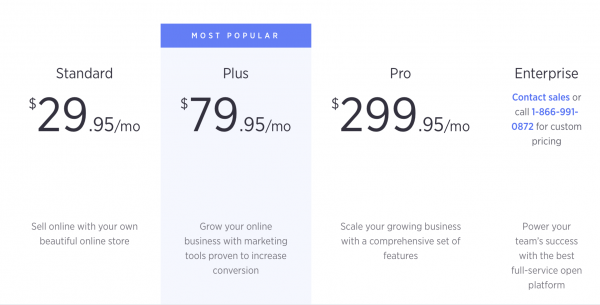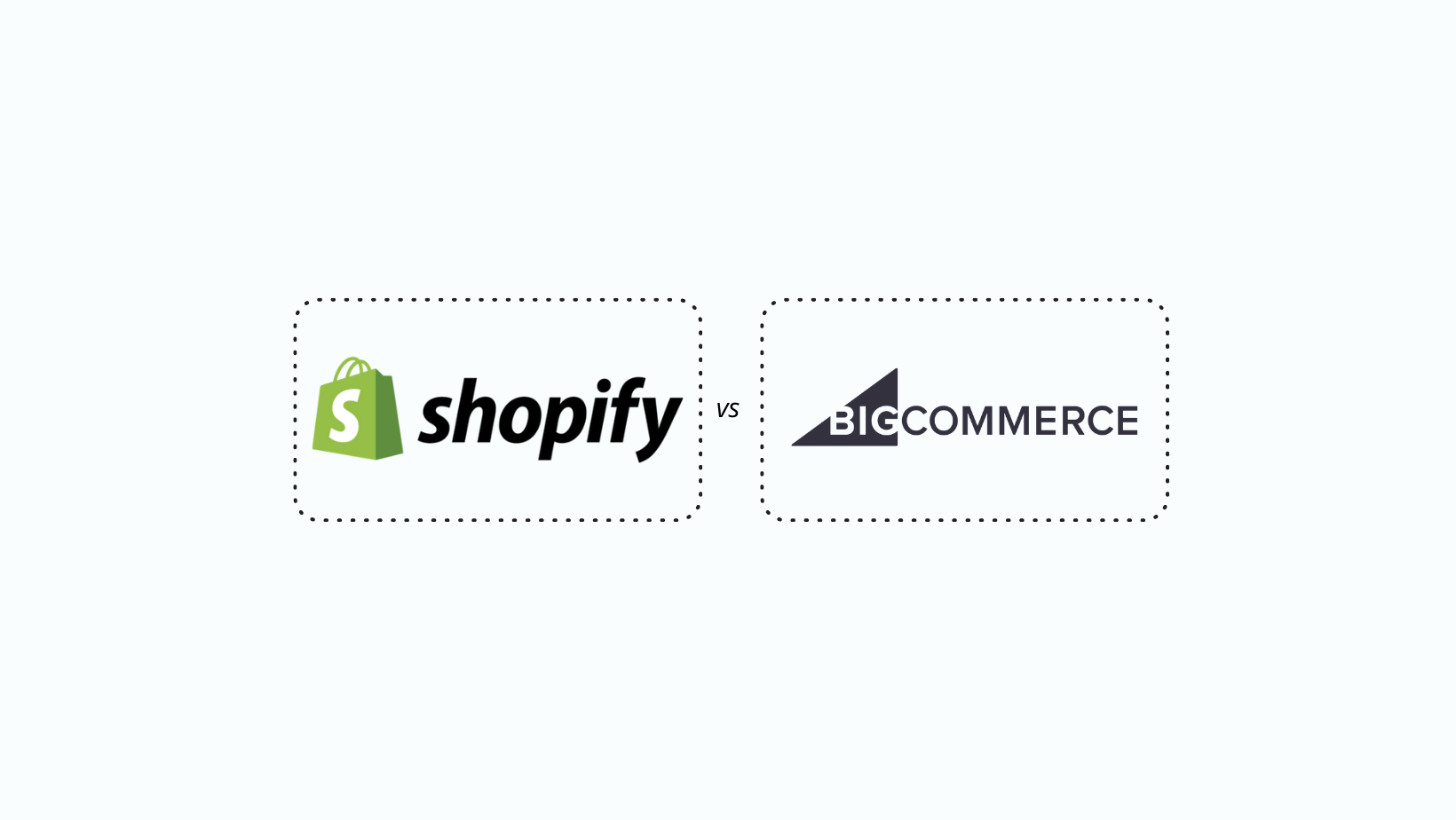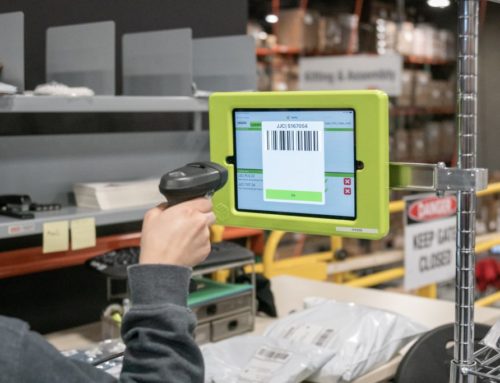With so many versatile and functional eCommerce platforms to launch your business with, it can be hard to know what fits best for you, your customer’s needs, and your products. Knowing where and how to lay the foundation for your eCommerce selling success is integral to starting on the right foot and charting your trajectory towards ultimate success.
As a result, the following breakdown will outline some of the most pertinent strengths, weaknesses, similarities, and differences between Shopify and BigCommerce platforms.
Things to consider
Before diving too deep into the specifics of every existing eCommerce platform, the following consensus about Shopify and BigCommerce should save you valuable time and energy in the investigative process. While both platforms are robust and extremely functional, comparing price with available features and performance of each is well worth understanding on your path towards multichannel eCommerce success.
Key Differences: Shopify vs. BigCommerce
When it comes to eCommerce selling platforms, both Shopify and BigCommerce are industry powerhouses. While Shopify remains one of the most reliable, profitable, and trusted eCommerce selling platforms, BigCommerce has its unique appeal and draw. Not to mention, since its 2009 inception, BigCommerce has been one of the fastest-growing sites, generating $181 million in the year 2020. Both platforms offer a range of impressive features and innovative integrations, which makes them a good choice for both new and experienced sellers alike.
Some of the key differences include:
Built in-Features: When it comes to built-in features, BigCommerce takes the cake with the ability to have multi-currency selling, ratings, and reviews all easily integrated into product pages. These same features are available with Shopify, despite sometimes coming at a small price.
Free Templates: Never underestimate the appeal and functionality of free website templates and themes. While Shopify offers 10 free themes with 22 variations, BigCommerce only offers 5 free themes with 12 variations. At times, BigCommerce themes can appear slightly outdated, forcing you to pay for upgrades, while with Shopify, modern and clean-looking templates come standard.
Extra fees: In contrast, BigCommerce sites don’t charge the same credit card processing fees that Shopify does. While small fees are still manageable, this means you can potentially earn higher margins for each sale with BigCommerce.
Annual sales limit: You never want to limit sales, however with BigCommerce, each plan includes a cap of $50 000 before forcing you to upgrade your plan. In contrast, Shopify has no selling or sales limit, which is an attractive selling point.
Coding experience: While each eCommerce platform often requires some small coding add-ons, BigCommerce requires significantly more coding experience to customize and tailor the site to your needs. In contrast, Shopify simplifies the process with less emphasis on custom coding. As a result, Shopify is more beginner-friendly.
Ease of use: Shopify is all-around easier to use because of fewer features and the added customization that BigCommerce requires. Especially when starting, Shopify makes the simplest to the most difficult tasks easy to execute and comprehend.
Pricing: Shopify vs. BigCommerce
As displayed, pricing plans for each platform are competitive, with some minor differences in extra fees and monthly subscription prices:


Both BigCommerce and Shopify standard plans come out to $29.95 and $29.00 a month, with advanced tiers priced at $79.95 and $79.00, and pro plans at $299.95 and $299.00. As displayed, pricing is fairly even. A major difference in the pricing model is that Shopify users are charged up to 2% for any transaction fee — not including subscription fees, while BigCommerce charges nothing, which is a great workaround.
Both platforms do offer free trial plans, with Big commerce offering users 1 month free of charge upon selecting a plan. On the other hand, Shopify offers a 14-day trial before forcing you to decide on a subscription plan.
Pros & Cons of Shopify:
Pros:
- Easy of use: Shopify is an excellent platform for beginners with an easy-to-use drag and drop page editing and elements that can easily be added into columns and rows of pre-built templates.
- Customizable templates: Shopify offers countless modern free templates and 60+ customizable premium templates streamlined to your needs.
- Free 14-day trial: Try Shopify for 14 days at no cost.
- 24/7 Support: Enjoy 24/7 support via live chat, email, phone, social media, or really whenever you have an issue with your store.
- Shipping integrations: Shopify easily integrates with custom and standard shipping software platforms like Driveline, so you don’t have to worry about complicated supply chain and shipping logistics.
- Multi-channel selling: The ability to easily sell across multiple platforms, including social media, is well worth the investment. It pays to go where customers spend most of their time.
- 6,000+ third-party apps: The Shopify App Store is a one-stop-shop for everything you need to improve and customize your online marketplace. With everything from email marketing to SEO programs and plugins, it’s rare to find something that Shopify App Store doesn’t have.
Cons:
- High transaction fees: You’ll end up paying anywhere from 0.5% to 2.0% for transaction fees when processing payments via third-party apps like Square, Stripe, or PayPal.
- Add-on fees: While Shopify has thousands of applications to choose from, most popular third-party apps come at a cost. These can range from $5 to $150 per month.
Pros & Cons of BigCommerce:
Pros:
- Zero Transaction fees: Unlike Shopify, BigCommerce has no transaction fees for purchases made through your site.
- 24/7 Support: Enjoy 24/7 support from teams available via phone, live chat, or email.
- SEO tools: Finding functional and accurate SEO tools can be difficult. BigCommerce has all the necessary features to rank highly and increase conversions. Plus, it comes with an array of functional built-in SEO features, which means less work for you.
- Multi-channel selling: Choose to sell anywhere, including social media platforms like Instagram, Facebook, and Youtube.
- Free 15-day trial: Enjoy your first 15 days free with BigCommerce, which is one extra than the free Shopify trial.
- Shipping integrations: BigCommerce easily integrates with custom and standard shipping software platforms like Driveline, so you don’t have to worry about complicated supply chain and shipping logistics.
Cons:
- Annual sales limit: One of the major disadvantages of BigCommerce are the selling limits that come with each subscription. You never want to limit sales or pay more than you need to for a platform. Standard BigCommerce plans are limited to $50,000 in sales, with plus plans limited to $180,000 in sales, and Pro plans limited to $400,000. Anything above the $400,000 annual sales threshold requires negotiation under the BigCommerce Enterprise plan.
- Easier for advanced web developers: While this could be both a pro and con, starting out, you want to build a site that you can manually edit without advanced coding experience or a development team. In this case, BigCommerce is not the ideal choice because it does require a higher level of coding knowledge and skill.
Shipping
Shipping and logistics are important aspects of your eCommerce store. Making the shipping process as seamless as possible while saving you time and money is always ideal. At Drive Fulfillment, we pair unmatched customer service with custom shipping solutions to maximize your efficiency and opportunities for growth. Now, more than ever, customers seek customization and ease of use regarding shipping and logistics. While Shopify and BigCommerce both offer some forms of calculated shipping, Shopify is far superior with the ability to automatically calculate USPS and Canada Post rates in real-time.
The Winner
While there are obvious advantages and disadvantages to each platform, it’s difficult to pick a winner. Shopify is a great way to get the ball rolling and launch yourself in the eCommerce world. With minimal experience, a great idea, and a few extra fees, you can be well on your way. If you are an established brand looking for more customization and attention to detail, Bigcommerce might be the way to go. As it sometimes goes, the more effort you put in, the more you get out.
Exploring a partnership with a 3PL entity or Fulfillment Center like Drive Fulfillment can offer discounted UPS, USPS, and DHL rates, competitive pricing, in-house website design expertise, customer service support, and international shipping capabilities. The sky’s the limit when your eCommerce products are affordable and readily available to over 60 million customers in more than 106 countries worldwide.






